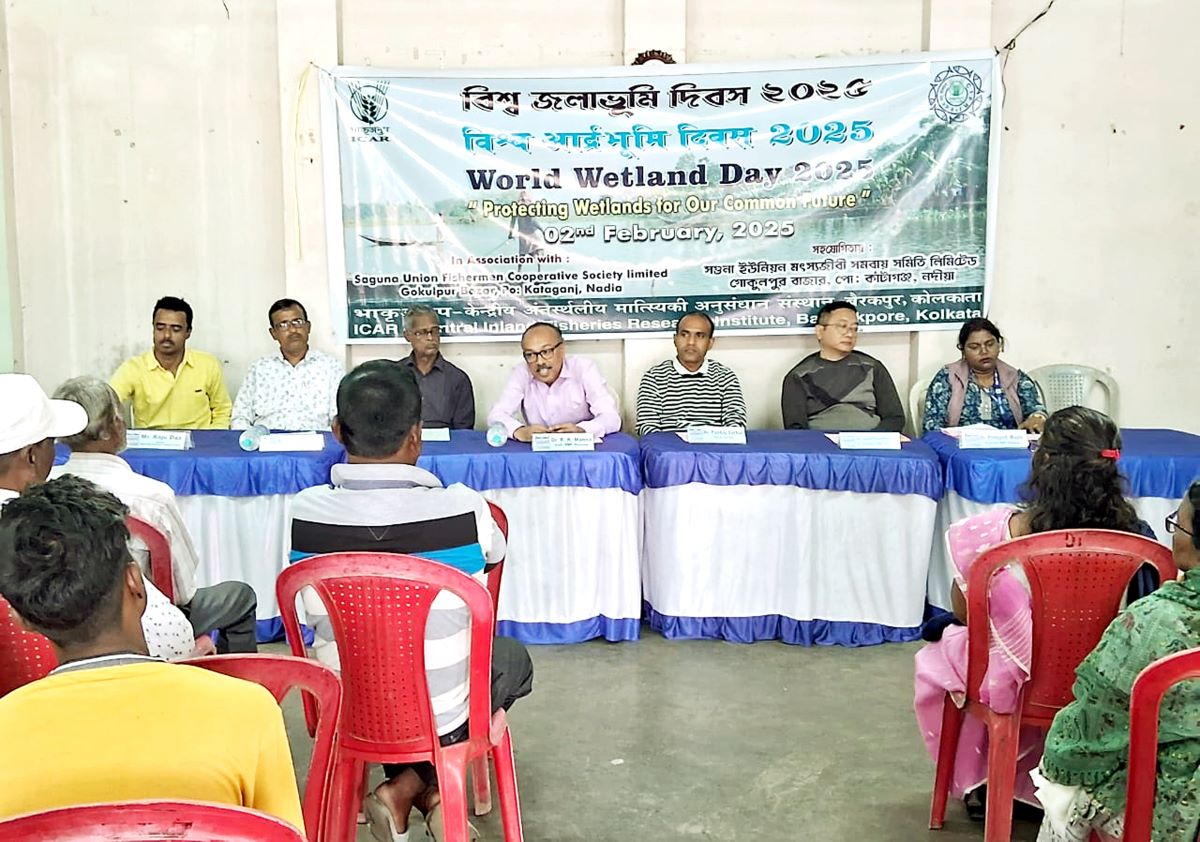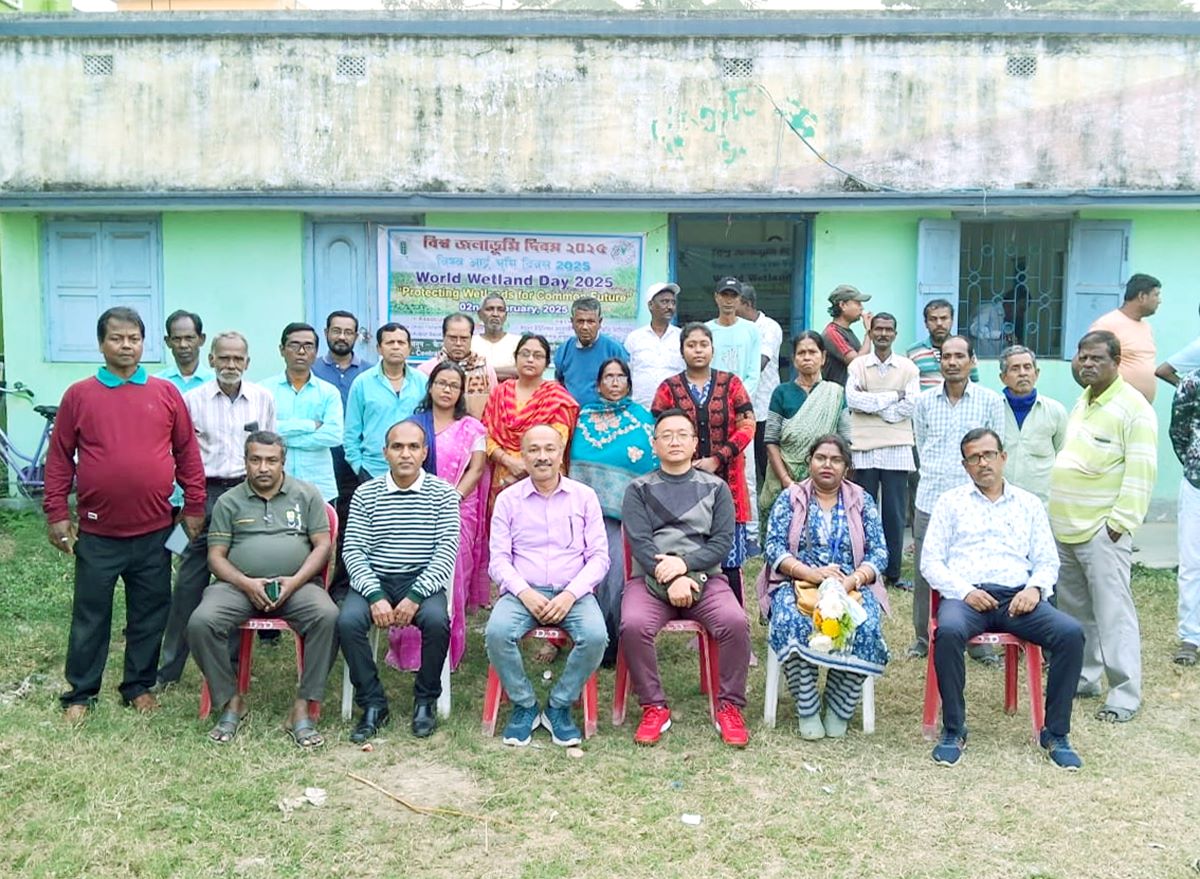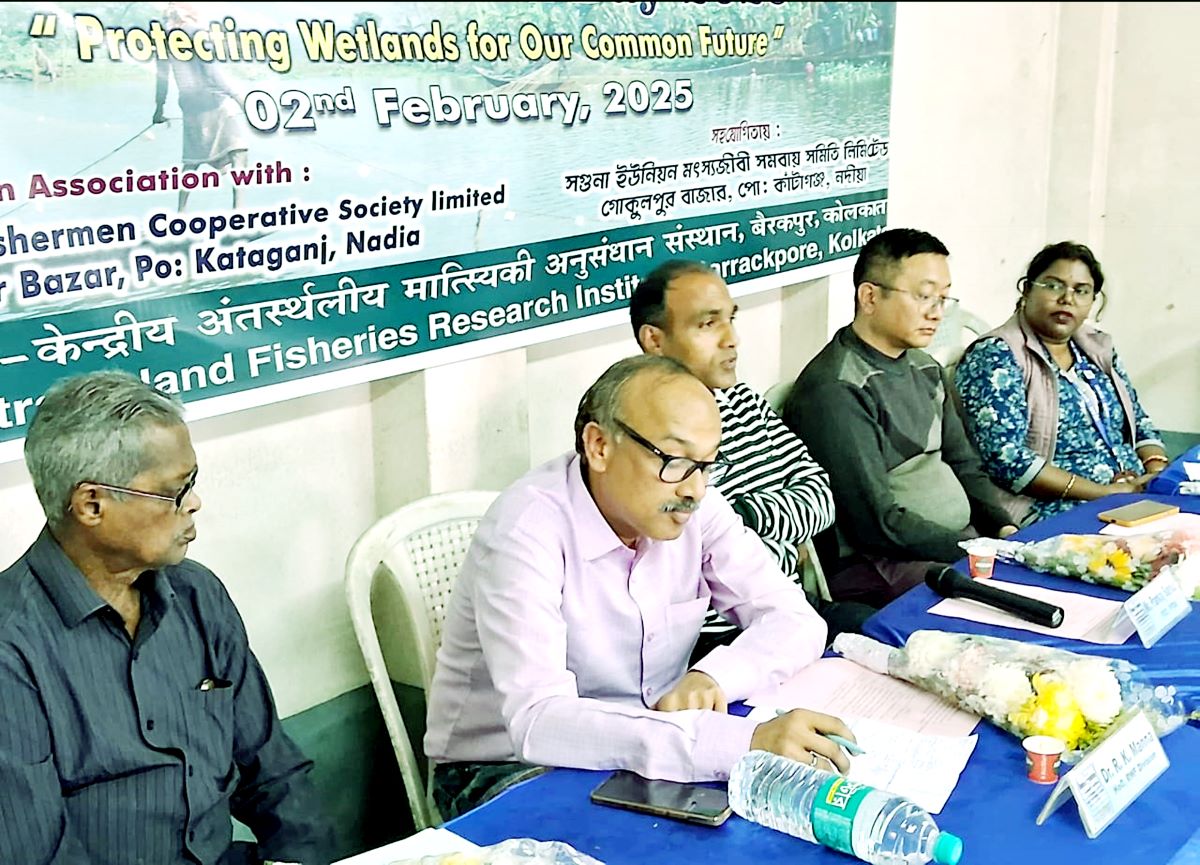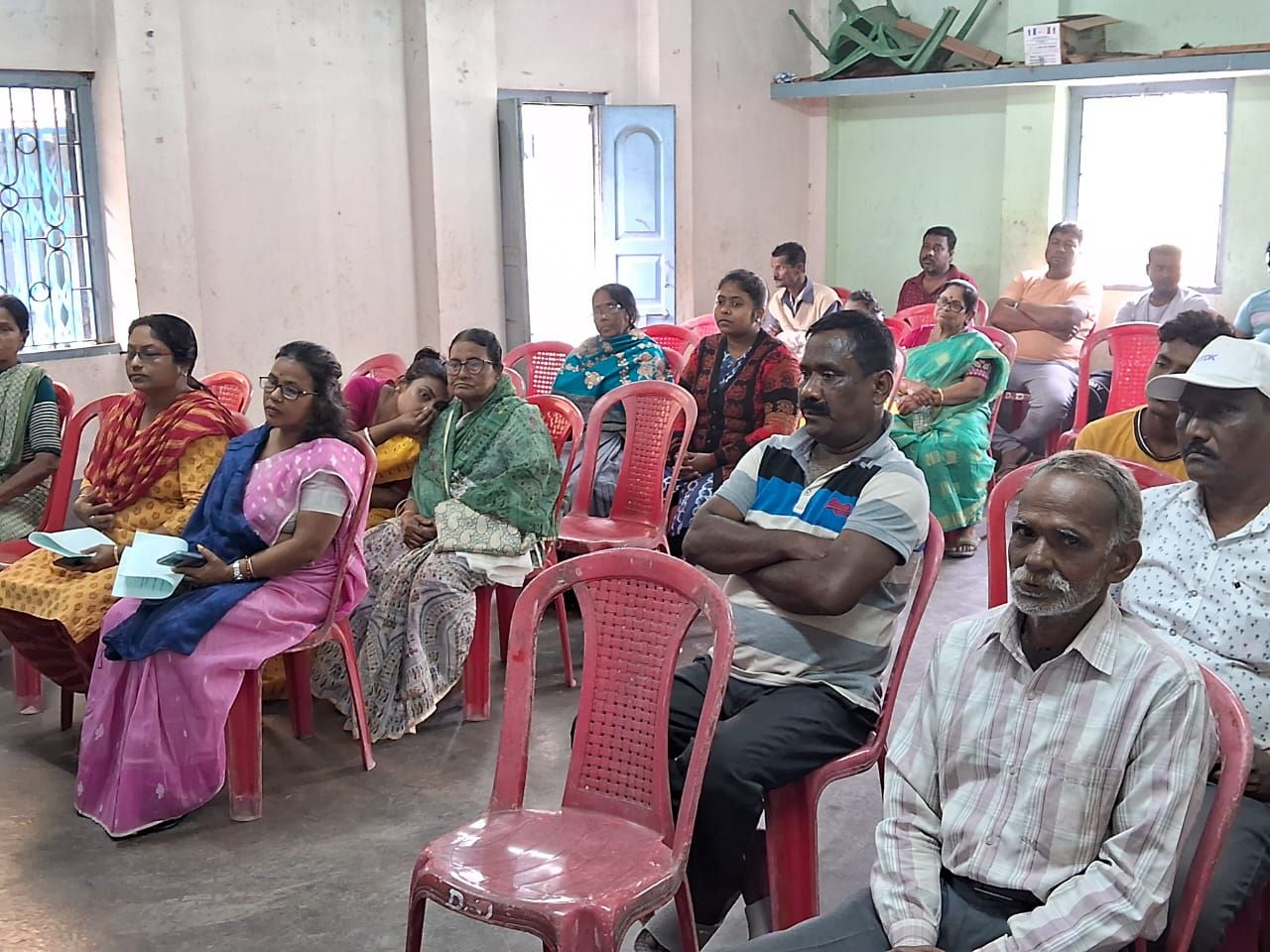Overview
Publications
Recruitment
Intranet
CIFRI Corners'
Wetlands play an important role in providing many ecosystem services including water purification, biodiversity conservation, fish production, and water supply, highlighting its role in ecological balance, supporting life and improve livelihood. Due to anthropogenic activities, climate change and other factors, the environmental condition of many wetlands of India are increasingly vulnerable. It is essential to put an effort to restore and conserve the ecosystem of this vital ecosystem with participation of the stakeholders at ground level like fishers associated with the wetland. ICAR-Central Inland Fisheries Resources Institute conducted a field day programme with the theme of the year 2025 i.e. “Protecting wetlands for our common future” on the occasion of the World Wetland Day 2025 celebration on 2nd February 2025 at Kulia beel, Nadia, West Bengal to sensitize the fishing community of wetland. The programme was held in association with the Saguna Union Fishermen Cooperative Society, Kantaganj, Nadia. During the programme,














